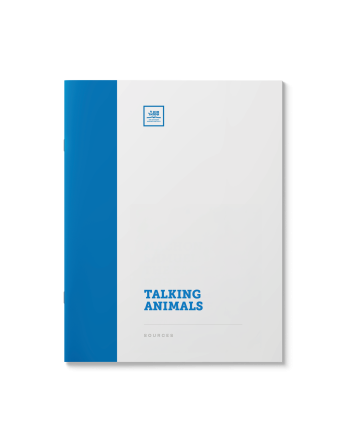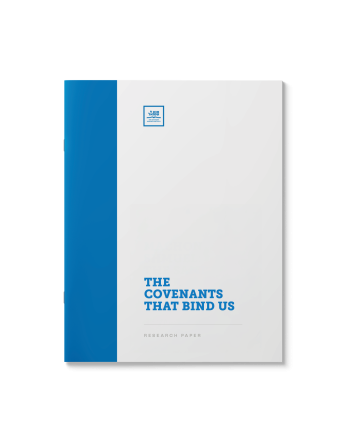The Devastation of Midyan: Justice or Genocide?
$39.00
The final battle of Moshe’s lifetime is known as the war with Midyan. Moshe conveyed the divine instruction to take the lives of all the male Midyanite minors. Can this paradigm be reconciled with modern-day norms of war?
(updated)
| Language | English |
|---|---|
| Paper Type | Research Paper |
| Pages | 6 |
Related Products
The Torah’s account of the feud of Korach raises many questions. By saying, “I shall consume them in an instant” G-d seems to appear vengeful. Why was it necessary to demonstrate such staggering might? Why was it specifically the Ketores that was used to stem the spread of the plague after the demise of Korach?
Formulated as a series of answers, rebuttals and rejoinders, the information in this document will be invaluable to you when studying this important subject. Why did G-d instruct Moshe to take the Staff? If he was not to strike the rock, why did it issue forth water? How could Moshe defy G-d’s explicit instructions?
Having survived the Great Flood, Noach was comforted by the sight of the dove clutching an olive leaf, the proverbial sign of peace.
What is unique about the olive leaf? What was the message it conveyed to Noach? What relevant lesson can be gleaned from this incident?
In 1903 professor Simon Newcomb argued that human flight was a “mathematical impossibility,” but that same year, the Wright Brothers successfully launched the first powered airplane.
Having your travel route shortened and arriving at your destination almost momentarily is known in Biblical terms as Kefitzas Ha-derech. It may be “naturally impossible,” but miracles do happen! From Avraham to the Baal Shem Tov, some of our greatest heroes experienced this firsthand.
Read this paper to explore this fantastic feat, its history and halachic ramifications. Have a safe trip!
(67 pages)
Submitted by a Shliach in Florida
The State of Israel as a culmination of the Zionist enterprise represents a unique ideological school of thought. To what extent is this ideology compatible with Judaism in general and the philosophy of Chabad in particular?
From its inception, the dream of a modern autonomous Jewish homeland generated both excitement and controversy. How did Gedolei Yisroel and our Rebbeim react at the time? Did the Rebbe’s stance differ in any way from that of his predecessors?
What practical bearing do our ideological differences have? How do we provide our best support for our brothers in Eretz Yisrael while maintaining the integrity of our own principles? How do we navigate Religion and State in Eretz Yisrael?
This paper features a comprehensive overview of the Chabad attitude to the State of Israel, the background and battles of Zionism, ischalta d’Geula, and a host of related topics, including many practical hora’os from the Rebbe.
Yonah. A prophet, a man of G-d – and a man who ran away from his duty. Yonah is one of the most famous and enigmatic prophets in Jewish history. Discover how Yonah’s actions are viewed from the Torah’s perspective and examine why his deeds were recorded for posterity.
The circumstances surrounding the birth of King David remain obscure. Legend has it that Nitzeves endured great personal sacrifice in mothering the Sweet Singer of Israel. How is this chapter in King David’s life understood through the lenses of Torah scholarship?
The sanctity and celebration of human life in Judaism can be said to be commensurate with the aspiration for death amongst our enemies.
The recent headlines reporting that some Israeli MDA first responders provide emergency medical care for injured terrorists, raises some serious ethical dilemmas.
What is the Torah’s position?
A detailed exploration of these laws as they pertain to Bnei Noach and Gerei Toshav; the laws of Lo Sichanem, Rodef, Moser and more.
Man was set apart from the animal kingdom by his ability to speak. How were Chava and Bilam able to converse with the snake or donkey? Were these conversations real?
Moshe’s name is perhaps the most recognized name in all of Judaism, the name of arguably the greatest Jewish leader of all time – and a name that was given to him by an Egyptian Princess. Why did the Torah choose his Egyptian name as the name to be remembered for posterity? Why wasn’t his Jewish name recorded? And what was his Jewish name?
The Biblical account of Sarah’s treatment of Hagar is well-known. How do the classic commentators and other authorities understand her behavior? Is she to be criticized or vindicated? What moral defense can be offered for Sarah banishing Yishmael?
There are many covenants between G-d and the Jewish people described in the Torah, such as the covenants with Avraham, before Matan Torah, before entering Eretz Israel, as well as many others. What is the significance of each covenant according to the traditional and mystical meanings?











![Medical Intervention for Terrorists - To Treat or Not to Treat? [New!]](https://catalog.myjli.com/wp-content/uploads/2025/05/SAMSMIT-350x448.png)



